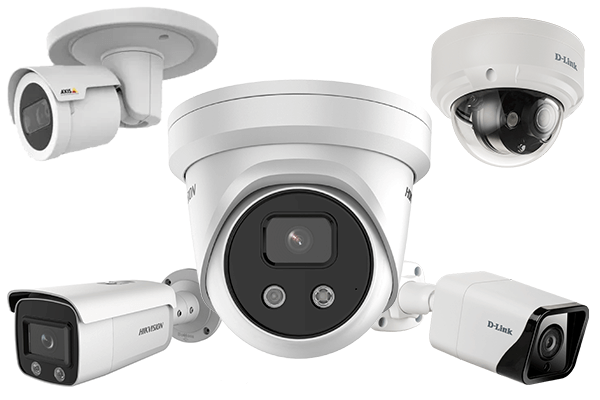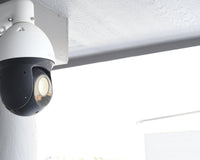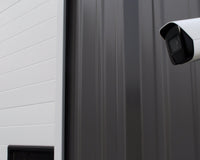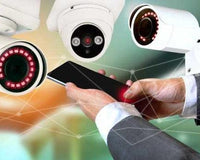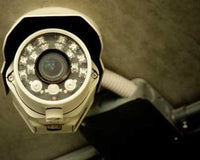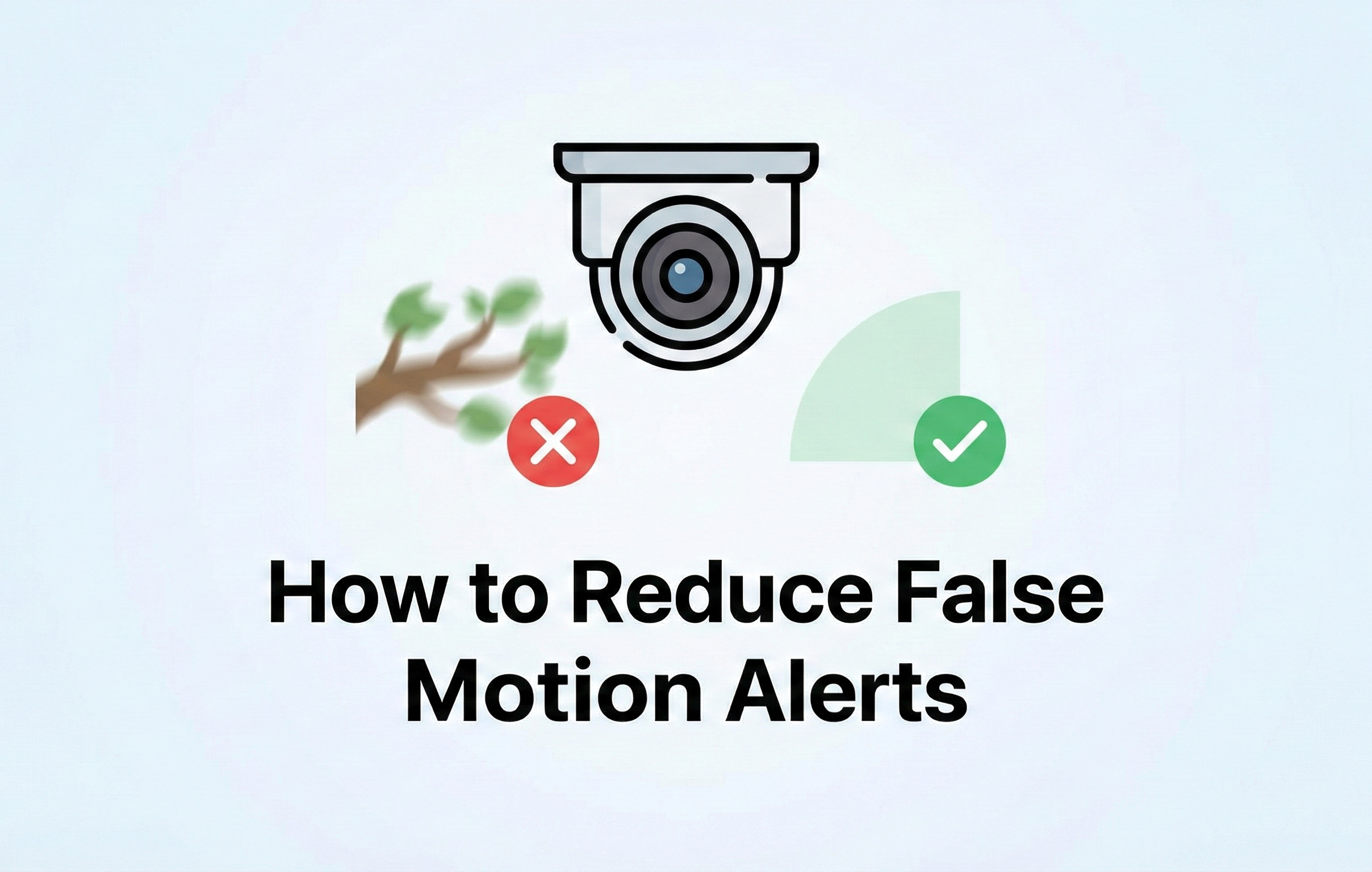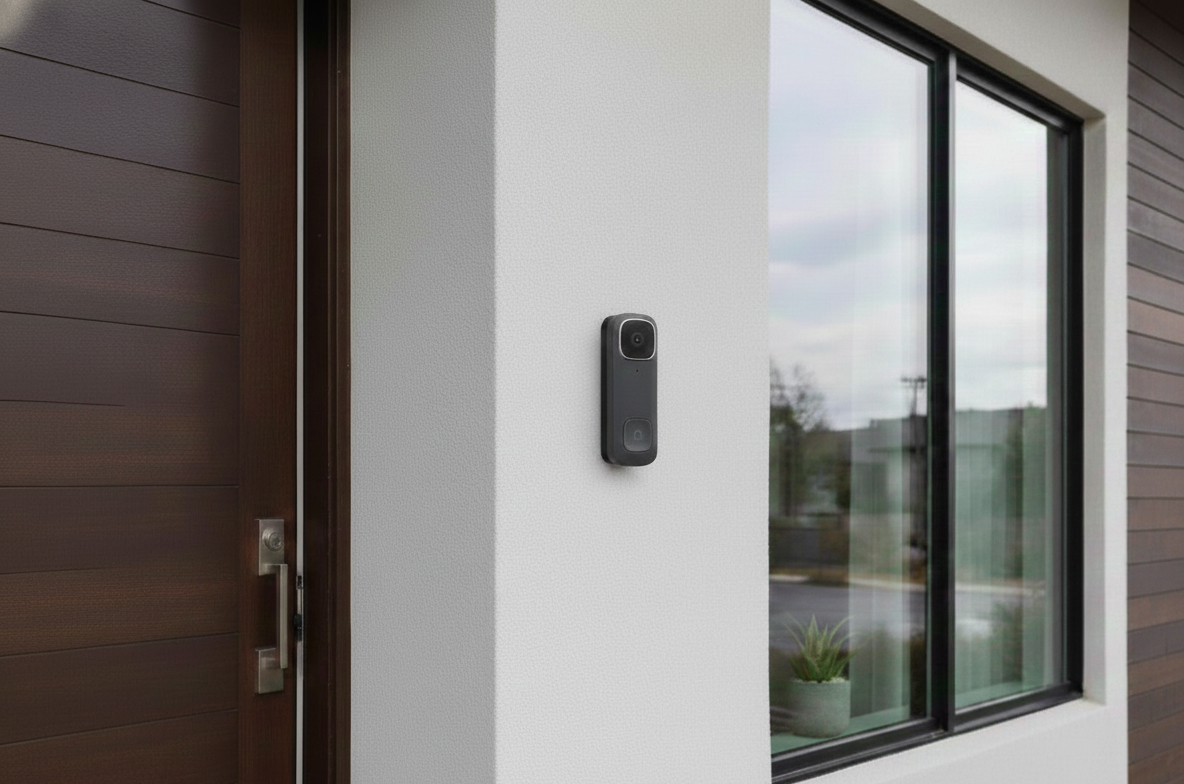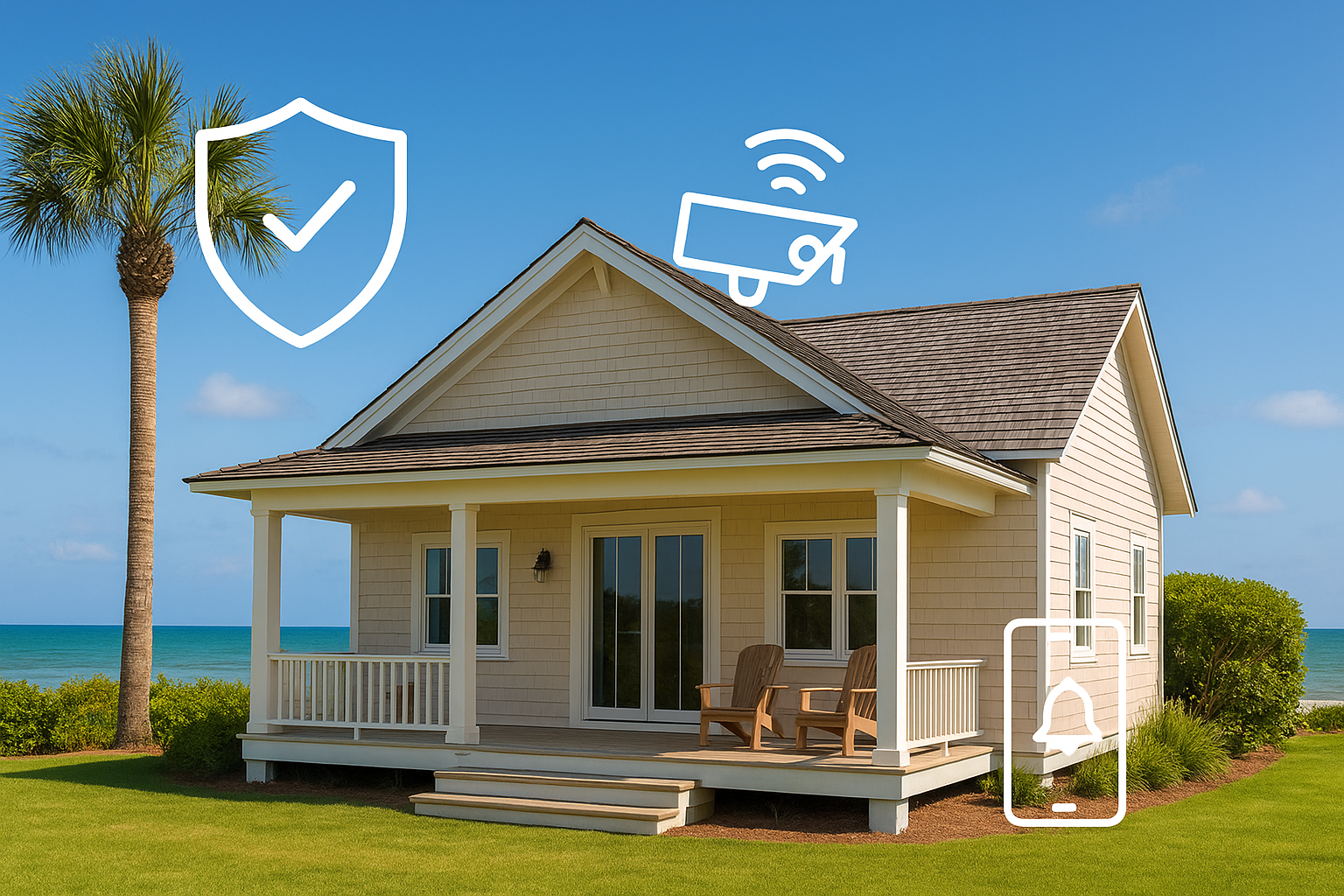When most people think of home security, the first thing that comes to mind is a traditional security camera system.
While these systems are still very popular, new technology has given homeowners another option: IP security cameras.
How do these cameras work, and are they right for you?
Read our guide to learn all you need to know about IP cameras!
What Is An IP Security Camera?
IP cameras are a type of digital video camera that uses an Internet Protocol (IP) address to send and receive data.
This data includes the video signal, as well as information about the CCTV camera's location, orientation, and other settings.
IP cameras are becoming increasingly popular because they offer a number of advantages over traditional security cameras.
For example, an IP camera can be easily integrated into an existing home network, and they offer remote viewing capabilities that allow users to view live footage from anywhere in the world.
Furthermore, an internet protocol camera is more versatile than traditional CCTV cameras and can be used for a variety of applications beyond security.
How Do IP Security Cameras Work?
IP cameras work by sending and receiving data through the internet. This allows them to be accessed from anywhere in the world, as long as there is an internet connection.
IP cameras are very easy to install, and they offer a number of benefits over traditional security cameras.
For example, they can be accessed from anywhere with an internet connection, and they are much easier to install.
What Are The Benefits Of IP Security Cameras?
There are many benefits to IP cameras. Here are a few:
- Remote Viewing
- Easy Installation
- Flexibility
- Two Way Audio
- Fewer Wires and Cables
Remote Viewing
IP cameras can be accessed from anywhere in the world with an internet connection. This means that you can view live footage of your home, office, or business from anywhere.
Easy Installation
IP cameras are very easy to install. You don't need to hire a professional, and the process is typically very quick and easy.
Flexibility
Another great benefit IP cameras are very versatile and can be used for a variety of applications beyond security.
For example, you can use them to monitor your home or office or to keep an eye on your pets while you're away.
Two Way Audio
IP cameras come with two-way audio, which allows you to communicate with people in the vicinity of the camera.
This is a great feature if you want to use the camera for things like customer service or monitoring your employees.
Fewer Wires and Cables
IP cameras use fewer wires and cables than traditional security cameras. This makes them much easier to install, and it also reduces the risk of tripping over cords.
What Are The Disadvantages Of IP Cameras?
There are a few disadvantages of IP cameras. Here are a few:
- Higher Price Tag
- Potential Security Issues
Higher Price Tag
IP cameras generally cost more than traditional security cameras.
However, the price difference has been decreasing in recent years, and IP cameras are becoming more affordable.
Potential Security Issues
IP cameras can be vulnerable to hacking if they are not properly secured. However, this is usually a very easy issue to fix, and it is not a common problem.
Different Types Of An IP Camera
There are a few different types of IP cameras. Here are a few:
- Fixed Cameras
- PTZ Cameras
- Wireless Cameras
Fixed Cameras
Fixed cameras are the most common type of IP camera. They are typically mounted on a wall or ceiling, and they cannot be moved. Fixed cameras offer great coverage of a specific area, and they are very easy to install.
PTZ Cameras
PTZ cameras are also known as pan-tilt-zoom network cameras. They offer more flexibility than fixed cctv cameras because they can be moved to different positions. They are great for monitoring large areas, and they can be controlled remotely.
Wireless Cameras
Wireless IP cameras are the most flexible type of IP camera. CCTV systems can be placed anywhere in your home or office, and they don't need to be connected to a power outlet.
Wireless cameras are great for people who want to be able to move their CCTV cameras around, and they are very easy to install.
How To Choose The Right IP Camera For Your Needs
There are a few things to consider when choosing an IP camera.
What Is Your Budget?
The IP camera range in price from around $100 to over $1000. You'll need to decide how much you're willing to spend on an IP camera before you start shopping.
What Are Your Specific Needs?
Before you start shopping for an IP camera, you'll need to decide what your specific needs are.
Do you need a wireless camera? Do you need a PTZ camera? Do you need night vision?
Once you know what your specific needs are, you'll be able to narrow down your choices and find the perfect digital video surveillance camera for your needs.
IP cameras are a great way to keep an eye on your home, office, or business. They use fewer wires and cables than traditional CCTV cameras and security systems, and they are becoming more affordable.
There are a few different types of IP surveillance systems, and you'll need to decide what your specific needs are before you start shopping.
Tips For Maintaining Your IP Camera
Here are a few tips for maintaining your IP camera system:
- update your camera's firmware regularly
- change your password often
- keep your software up to date
Regularly Update Your Camera's Firmware
One of the most important things you can do to keep your IP security camera secure is to regularly update your camera's firmware.
Firmware is the software that runs your camera, and it is constantly being updated to fix security vulnerabilities. Make sure you are running the latest version of your camera's firmware, and check for updates regularly.
Change Your Password Often
Another important thing you can do to keep your IP camera system secure is to change your password often.
Hackers can use cyber attacks to guess your password, so it is important to keep it changing on your computer network.
You should also make sure to use a strong password that is at least 8 characters long and includes a mix of uppercase letters, lowercase letters, numbers, and symbols.
Keep Your Software Up To Date
It is also important to keep your camera's software up to date. Just like with your camera's firmware, hackers are constantly trying to find new ways to exploit security vulnerabilities.
By keeping your software up to date, you can ensure that your camera is protected against the latest threats.
Keep Your Equipment Updated
A wired connection over time can degrade, so it's important to keep your equipment updated.
Especially if you have a single IP camera then it's important to be sure that the router, internet wired connection, and other equipment are all up to date and running smoothly.
If you have security camera systems, then it's important to keep your equipment updated and maintained. By following these tips, you can ensure that your surveillance system is always running smoothly and securely.
Conclusion
IP security cameras are a great way to keep an eye on your home, office, or business.
They use fewer wires and cables than traditional cctv cameras that are needed for IP cameras to connect and they are becoming more affordable.
There are a few different types of IP cameras, and you'll need to decide what your specific needs are before you start shopping.
You should also make sure to regularly update your camera's firmware and software, and change your password often.
By following these tips, you can ensure that your IP camera is secure.

